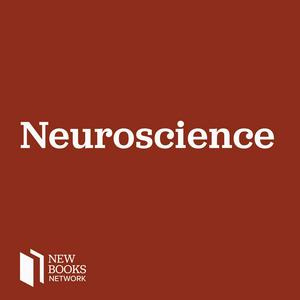Unlocking the Secrets of the Nervous System: A Deep Dive with Dr. George S. Thompson and Patrick Ney
Parenting is an emotional rollercoaster – filled with moments of joy, stress, and everything in between. But what if there was a scientific way to understand and navigate these emotions more effectively? In a compelling new podcast episode, Patrick Ney, Lead Trainer at All About Parenting, sits down with Dr. George S. Thompson to explore the fascinating world of polyvagal theory and its profound impact on child development.
This conversation is a must-listen for parents, educators, and anyone looking to deepen their understanding of human connection. Dr. Thompson, co-author of Polyvagal Theory and the Developing Child (Norton, 2021) unpacks the science behind how our nervous systems shape our emotions, behaviors, and relationships from birth to adulthood.
What You'll Discover in This Episode
The Science Behind Connection – Dr. Thompson explains how our nervous system constantly scans for safety and threat, influencing everything from our stress levels to our ability to bond with others.
Why Your Child Looks at You for Reassurance – Ever noticed your child checking your face when they’re unsure? That’s social referencing in action. Dr. Thompson breaks down why parental expressions and tone of voice play a crucial role in emotional regulation.
Understanding the Three States of the Nervous System – Calm and connected, fight-or-flight, and shutdown – these three states dictate how we react to the world. Learn how to recognize them and respond in ways that foster security and resilience in children.
The Power of Co-Regulation – As parents, our nervous systems influence our children’s emotional states. Dr. Thompson shares practical ways to use this knowledge to create a more peaceful and connected home environment.
Debunking Polyvagal Theory Myths – Some skeptics claim polyvagal theory lacks scientific backing. Dr. Thompson sets the record straight, drawing on decades of research and clinical application.
Why This Episode Matters
Many parenting theories focus on discipline, communication, or routines – but few address the biological foundation of emotional security. Polyvagal theory offers a groundbreaking perspective: that a child’s ability to learn, connect, and regulate emotions depends on their sense of safety at a physiological level. This episode dives deep into how this works, offering practical tools that every parent can apply.
Dr. Thompson also shares powerful real-life examples, including an in-depth discussion of a child navigating a residential care program. Through this case study, he illustrates how understanding the nervous system can transform how we support children, especially those who have experienced trauma.
A Conversation You Won’t Want to Miss
Patrick Ney brings his own parenting experiences into the mix, making this discussion both insightful and relatable. Whether you’re new to polyvagal theory or already familiar with it, this episode will leave you with a new appreciation for how our nervous systems shape our lives.
If you want to better understand your child’s emotions, improve your parenting approach, or simply gain a fresh perspective on human behavior, tune in now.
Listen to the full episode today – your child’s nervous system will thank you!
Learn more about your ad choices. Visit megaphone.fm/adchoices
Support our show by becoming a premium member! https://newbooksnetwork.supportingcast.fm/neuroscience
